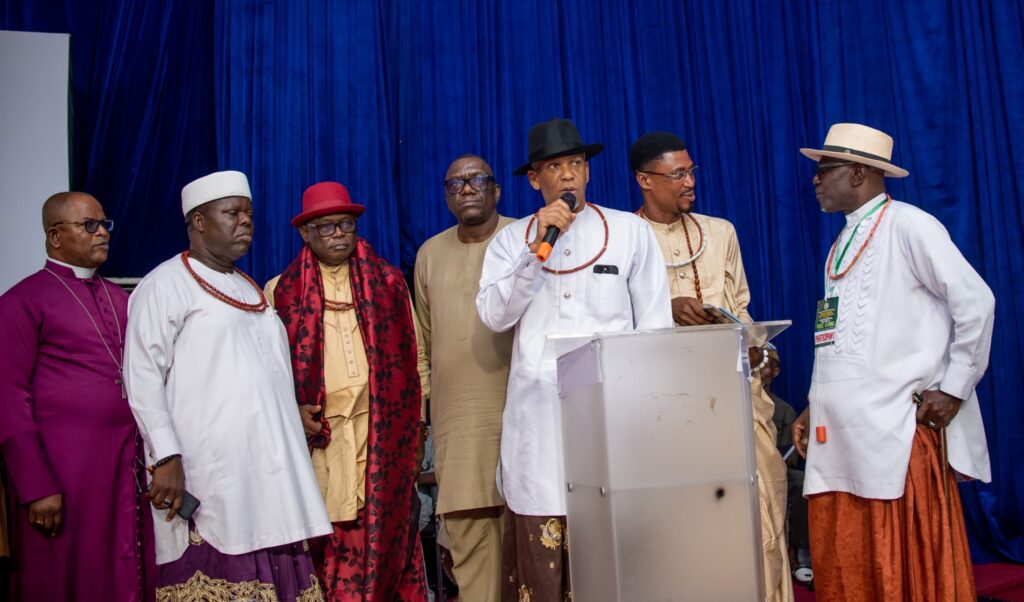From Juliana Taiwo-Obalonye, Abuja
Senator Ede Dafinone, who represents Delta Central Senatorial District in the National Assembly, has made a compelling appeal for the creation of Ethiope State from Delta State at a public hearing of the House of Representatives Committee on Constitutional Review.
Addressing lawmakers and stakeholders in Yenagoa, Dafinone emphasised that the move is “not just about drawing new boundaries,” but a “call for more inclusive governance for the Urhobo people, Nigeria’s fifth-largest ethnic group and the largest in Delta State.”
Joined by Hon. Ben Etanabene and other advocates that “It’s a call for more inclusive governance for the Urhobo people, Nigeria’s fifth-largest ethnic group and the largest in Delta State.”
Dafinone stressed that Ethiope State would unlock unprecedented potential for the Urhobo by fostering economic self-determination. Citing the vast natural resources of the region, he argued, “Ethiope State will unlock the full potential of our people by enabling economic self-determination, especially through greater control of our rich oil, gas, agricultural, and maritime resources.” He further noted that statehood would shield and nurture Urhobo cultural identity, guaranteeing full representation in regional governance.
Highlighting the potential for improved governance, Dafinone said, “A new State will streamline public service delivery and improve administrative efficiency in a more culturally cohesive environment.” The senator emphasised the readiness and capacity of the new state, describing it as “viable, constitutional, well-resourced, and driven by a united people with the infrastructure, institutions, and vision to thrive.”
Framing the Ethiope State movement as a matter of principle, Dafinone declared, “This movement is about justice. It is about equity. And ultimately, it is about building a more inclusive and balanced Federation.”
As debate over state creation continues across Nigeria, the passionate demands for Ethiope State, as voiced by Senator Dafinone, are sure to fuel further national discussion about equity and representation in the federation.


